We've been wondering what Valve had planned to show off Steam Deck compatibility for games and now they've launched Deck Verified as their answer.
Valve say they are reviewing the entire Steam catalogue on the Steam Deck, with each of them gaining a category that it falls under that will show up across Steam from the store to your own Steam Library. The ratings will be split across Verified, Playable, Unsupported and Unknown. This is good because there's a lot of reasons why games will mix between perfect and unplayable on Steam Deck and the Arch Linux-based SteamOS it ships with.
To be actually Verified the games need to hit these four points:
- Input - The title should have full controller support, use appropriate controller input icons, and automatically bring up the on-screen keyboard when needed.
- Display - The game should support the default resolution of Steam Deck (1280x800 or 1280x720), have good default settings, and text should be legible.
- Seamlessness - The title shouldn’t display any compatibility warnings, and if there’s a launcher it should be navigable with a controller.
- System Support - If running through Proton, the game and all its middleware should be supported by Proton. This includes anti-cheat support.
When you're playing on a Steam Deck, the first tab in the Steam store will also only highlight games that are "great" on the Steam Deck too.
Check out their video explainer below:
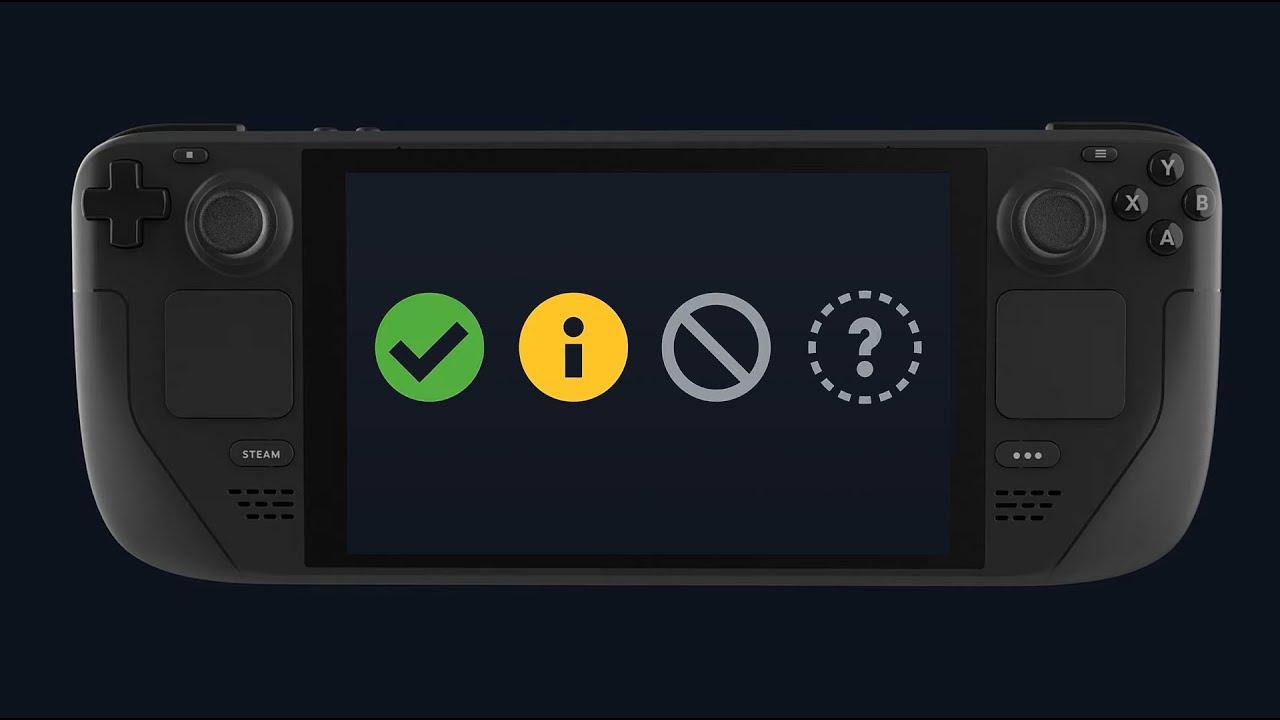
Direct Link
Want to see what their plan is? You can check it out on Deck Verified.
Valve also put up a Steam Deck Compatibility Review Process guide, which goes over the steps required for developers to take a look at. It gives an interesting insight into exactly what Valve and developers will be doing. Developers however will not be able to remove their game from being listed as Valve say the Deck is "an extension of Steam onto a new portable PC form factor, and so customers both expect and have access to the same store and library that they would on any other PC".
Just to complete the roundabout, "left 1/left 2" means nothing to me other than "left". Which is 1 and which is 2? Are we counting top-down, bottom-up, by increasing/decreasing size? There's no immediate logic to it for me.The SD has ABXY buttons, but not RB/LT etc. For some reason, Valve decided to take these from Playstation and they’re L1,R2 and so on.Interesting. That suits me fine as RB/LT mean nothing to me, whereas "left 1/right 2" is pretty self explanatory.
I had trouble with "LT/LB" as well until I figured out that "B" is "button" - there's only one of the two shoulder things that clicks, so that's the button, done.
At least "LT/LB" can be figured out, "L1/L2" has to be taught.
At least "LT/LB" can be figured out, "L1/L2" has to be taught.The PlayStation controllers (and I think the Steam Controller, but it's upstairs and I can't be bothered to go and check) have the numbers embossed on the buttons.
Just so you know, they're counted from the top as you're holding the controller, although the 2 buttons are bigger than the 1s. 3 is pressing in the sticks. That numbering scheme continues with the Steam Deck, with 4 and 5 running down the back.
For me, the key point is here:
"System Support - If running through Proton, the game and all its middleware should be supported by Proton. This includes anti-cheat support."
Emphasis is mine.
Does that mean a game can be verified for Windows on Steam Deck but not Linux/Proton? If that's the case, I don't see that going down too well...
No, it means they still can be Linux native.
Thanks, that makes sense :)
Only official PROTON should be allowed in the reports with only three options:
*Out of the Box.
*Playable after some manual workarounds..(legal workarounds)
*Unplayable
Ah, you're right, the Steam Deck is labelled! I don't care what they call them then :)At least "LT/LB" can be figured out, "L1/L2" has to be taught.The PlayStation controllers (and I think the Steam Controller, but it's upstairs and I can't be bothered to go and check) have the numbers embossed on the buttons.
Just so you know, they're counted from the top as you're holding the controller, although the 2 buttons are bigger than the 1s. 3 is pressing in the sticks. That numbering scheme continues with the Steam Deck, with 4 and 5 running down the back.
The Steam Controller isn't labelled BTW, but the bindings editor calls them "LT/LB / RT/RB".
How can it be "mark of shame" if the publisher releases the game only for Windows and does not care about some other (new/different) platform? Do you expect that they will lose Windows users because of this new platform that the game isn't even running on?Try to imagine the developer / publisher side situation: You're selling your game in a store which bites 30% of each sale you do, and suddenly your game is now advertised with the mark of shame in the store because of the lack of support for a OS that you didn't intended to support (for whatever reason), and this can give the idea for some customers that there's "something broken" in your product (even if this does not affect you like windows players), because you can't expect every consumer on steam to know what that mark means.
Publisher might take some flak from users, just like they do if users demand controller support, bugfixes or hell... Linux support. Same is going to be with Deck support. But that's all between users and the dev/publisher.
The least developer can expect from a store that takes 30% of your profit is to not officially give "bad publicity" about your game, doesn't matter if it's true or not. (different from users review btw, which are customers opinion)
So I imagine Valve can face the following dilemma:
-They make this information public to every client, and risk to face backlash from some developers / publishers claiming Valve is making "bad PR" of their products
-They make this information available only to steam deck users, and risk people asking for refund (deck) after discover that "games are not working in this console". In my opinion this also defeats the purpose of having all this work to do verification.
Of course I'm not confirming that any of this will happen, but it is all in the realm of possibility.
You keep calling it mark of shame and your whole argument stands on it. Calling it "Unsupported" is maybe a shame (for the user), but hardly shameful. Valve quite deliberately chose the ratings so it doesn't have negative connotations and just states the obvious truth, they don't even claim it doesn't run, it's just unsupported. Valve also never really says that it's the games fault (maybe with the exception of anticheat), they for the most part take that responsibility on themselves. I would agree with you if it was "borked" or "broken" (ProtonDB), there you could make the argument much easier.
It's not the exact wording that matters, it's the impression given to customers. If a game is advertised as working, without consent of the publisher/developer, and then a patch breaks it completely: people will blame the publisher/developer even though they never supported the platform in the first place.
That kind of thing is really the key issue, not what words Valve are using. People generally don't look up a dictionary before deciding to hate on a game publisher.
Valve will have to make it pretty damned clear that a game isn't officially supported on the Deck if they're going start advertising such things without publisher approval, and that the responsibility and culpability lies with Valve, and Valve alone, when seeking support.
Quite honestly that's not a support burden that Valve have a good track record with.
Valve was always rather clear that Proton support goes on their shoulders, but obviously if the devs do their own QA before updates, all the better. They even mention it in the video, the rating can change as developers release updates or the Deck software improves, which quite honestly admits that games might break. Yea, sure, its some throwaway comment in a video, but it shows where they are coming from. Also in the end Valve might be content with some possible friction between publishers... and are probably okay with bit of strong-arming and putting on peer pressure.
Before worrying about the 100% compatibility mark, I would try to get the same tests on Windows 10-11 with Windows games... It might be lower than 90%.
Ex: My son was never able to run Batman Arkham Asylum on Windows... I did with Proton.
I mean... 100% support doesn't exist, even on Windows, so...
The difference to Windows is that they target one hardware platform. Steam Deck has one hardware configuration. That's doable. They've hired external testers and are hiring for their internal team to get that curated and to provide (according to valve) verification within a week.
A week is nothing in the time of game development.
I'm actually not wondering if they can test 50.000 games. I am wondering if they have the means to improve then when they find out 20 % are not running properly, since that will very likely be more intensive, and having 10k games to improve is for sure no easy task for a small team as Valve is. Except if the original game developers help on that, either paid or on their own accord.
I'm seeing a lot of proton based updates to games (not proton itself, but the actual games updating), so I think that devs are actively working on making their games run on the deck. That's a good sign and will help us all (unless the new settings and improvements only work on steam deck).
There certainly seems to be a lot of interest in steam deck by developers. They probably do that with their existing titles to have the skills for their next title to come, but still that's interesting. Game devs hardly every showed any interest in that.
Last edited by STiAT on 20 Oct 2021 at 12:08 am UTC
Windows users don't think games have 100% compatibility so I'm not sure where you got the idea that is a thing. Games age and stop working on newer OS versions just like Linux. I can tell you with absolute certainty that more games work on Windows overall and the experience is smoother, but there are some edge cases where they do work better through Proton. I don't think that's a great comparison or standard for Linux land to try and live up to. What's important is that the experience on Linux distros both through Proton and natively are satisfying. And most importantly for the Deck is that the games that are rated to play well do that, and I think they will.That's true for Linux users as well. A native game may or may not work on a given distro which is why Valve offers SLR (the Ubuntu container) because what Linux compat often means is just Ubuntu support. Proton doesn't work consistently either as you point out. You needed to install a Glorious Eggroll compile of Proton to make things work as intended. Gaming has always been like this since the days of DOS, Amiga, and OS2 before Windows and Linux.Batman_Arkham_Asylum_Game_of_the_Year_Edition/) works on Windows 11. I just tested it.
But it proves how random things are, even on Windows. The issue my son got, with this games, is largely documented on support sites... He is not alone. On my end, just turning on ProtonGE makes the game run. We have same spec computers (except for the GPU, both Nvidia though).
You said, someone should test whether these things work on Win10/11 and then submitted a game you said doesn't work on Windows. I tested it, since someone curious asked, and it works for me. You know, like when you can't compile an app at work and the author shrugs and says, "It works on my machine."
It proves my point nonetheless... 100% compatibility on Windows doesn't exist. That's all I was saying. I never said it was better on Linux. Batman AA was just an example that I know is problematic for many Windows users. It works for you? Great for you!
If 90% of games are working on Linux being native or with Proton, it's probably in the same range than Windows games on Windows. We are not even talking about the fact that the Steam Deck is a dedicated hardware that will probably have more compatibility than any PC and it's millions of possible hardware combinations (software + hardware).
Yeah, it's my chief complaint about the controller. It does great on battery life and I love the feel and it has lasted a long time with a lot of use, but the battery thing bugs me. The Xbox Elite controller has a self-contained rechargeable battery. It's also $150 - $170. hahaha.The only big drawback to the current base Xbox controller for Windows is that it uses AA batteries instead of a self-contained rechargeable.
Odd. That's the main reason why I don't like ds.
Project : strandedinouterspace.chezjau.studio
Last edited by Jau on 20 Oct 2021 at 1:31 am UTC
Right now, people only see "windows" even if we can guarantee 100% compatibility [with proton].
I'm not sure what the issue is. If you only have a windows build that's all that should show. If your game works in proton that's gonna get you at least a playable rating on the deck and on protondb so anyone who doesn't care about native can play without issue. And the people who do care about native should know.
It's really interesting for us, small indies, who are not sure we will be able to provide native Win / Linux builds but would like to support Proton. It will be written. Right now, people only see "windows" even if we can guarantee 100% compatibility. (I'm not sure yet about a native build. Lots of issues, mostly time...)I would suggest that if you're officially testing and supporting running your game through Proton (and you'll hold back and rework any updates that don't work in Proton) that you announce that properly and shout it from the rooftops. For me that would make the difference between waiting till your game goes 50% off and waiting till your game goes 90% off. Native games I'll pay full price for.
Project : strandedinouterspace.chezjau.studio
It's fine if users understand that the game is basically being run in something completely outside of what it was developed for, but if a game starts to get negative attention because Valve are advertising it on a system that the publisher and developer never supported or intended to support, then they have every right to force Valve to stop.I don't understand how this is any different than what happens at the moment — if I look at a Windows-only game on my Debian desktop, I guess that's technically "Valve advertising it on a system that the publisher and developer never supported or intended to support." But if I buy that game, it doesn't work, and I complain to the developer/publisher or leave a negative review, they're going to reply, "Sucks to be you, we don't support that system", not, "We'd better sue Valve to make sure that our games are never seen on platforms they don't run on!" Besides, there's no way of knowing if I'm buying the game on Debian in anticipation of a new Windows gaming rig I'm setting up tomorrow, so it's not as easy as Valve only showing me games with native Linux versions while browsing on Linux.
Is it just a matter of quantity? Like, a developer can laugh off 100% of Linux users complaining because we're such a small market share, but if 5% of Windows users start complaining that's a big enough number to take notice of? Personally I think if the number of people complaining gets big enough to notice, any company worth their business savvy is going to recognize an untapped market and fund a team of developers for a few weeks to make their game compatible. (Though that might get muddied if it's games people owned before buying a Deck and thus aren't eligible for refund, since the company already has their money then and the gamers can just play on their non-mobile rig they originally bought the game for. Still, that would at least indicate a potential untapped market to consider.)
Send like a good idea. Tampers down expectations to something more realistic and probably prevents very loud angry people that would be disappointed it's not a drop in replacement windows system.
the issue is that they promissed one thing, and then downgraded their promisse, what about people who alredy pre order one?
at least they paid only 5 dollars, and have to refund only 5, but i can see that not everone will be confirming their purchase at the last minute, and not everyone who purchase, will see this video before they confirm and get screwed...
That's what has me concerned: Valve aren't going to track all the games and update things themselves. They'll try outsource that to "the community" and basically do a bare minimum themselves (basic business I guess). And realistically, if a game breaks then people are not going to blame Valve.
Then if Valve try any kind of pressure or strong-arming publishers, I don't think that would work either. Epic would be more than willing to give extra incentives to any publisher that happens to. Valve will have to keep publishers on their side in this case.
You do realize that you are making a number of assumptions here. For all we know, the "Verified" tag won't go on anything without publisher approval. Valve sent publishers development kits for a reason. It's quite possible that "Verified" will be a status that is maintained by the publisher, while "Playable" will be maintained by Valve and the community or some other arrangement regarding who has responsibility for each tag will exist that we haven't thought of.
Windows users don't think games have 100% compatibility so I'm not sure where you got the idea that is a thing. Games age and stop working on newer OS versions just like Linux. I can tell you with absolute certainty that more games work on Windows overall and the experience is smoother, but there are some edge cases where they do work better through Proton. I don't think that's a great comparison or standard for Linux land to try and live up to. What's important is that the experience on Linux distros both through Proton and natively are satisfying. And most importantly for the Deck is that the games that are rated to play well do that, and I think they will.That's true for Linux users as well. A native game may or may not work on a given distro which is why Valve offers SLR (the Ubuntu container) because what Linux compat often means is just Ubuntu support. Proton doesn't work consistently either as you point out. You needed to install a Glorious Eggroll compile of Proton to make things work as intended. Gaming has always been like this since the days of DOS, Amiga, and OS2 before Windows and Linux.Batman_Arkham_Asylum_Game_of_the_Year_Edition/) works on Windows 11. I just tested it.
But it proves how random things are, even on Windows. The issue my son got, with this games, is largely documented on support sites... He is not alone. On my end, just turning on ProtonGE makes the game run. We have same spec computers (except for the GPU, both Nvidia though).
You said, someone should test whether these things work on Win10/11 and then submitted a game you said doesn't work on Windows. I tested it, since someone curious asked, and it works for me. You know, like when you can't compile an app at work and the author shrugs and says, "It works on my machine."
It proves my point nonetheless... 100% compatibility on Windows doesn't exist. That's all I was saying. I never said it was better on Linux. Batman AA was just an example that I know is problematic for many Windows users. It works for you? Great for you!
If 90% of games are working on Linux being native or with Proton, it's probably in the same range than Windows games on Windows. We are not even talking about the fact that the Steam Deck is a dedicated hardware that will probably have more compatibility than any PC and it's millions of possible hardware combinations (software + hardware).
Exactly what I'm saying from the begining. I realise that the Batman example just added some confusion to the discussion. My bad. Sorry.
Before worrying about the 100% compatibility mark, I would try to get the same tests on Windows 10-11 with Windows games... It might be lower than 90%.
Ex: My son was never able to run Batman Arkham Asylum on Windows... I did with Proton.
I mean... 100% support doesn't exist, even on Windows, so...
The difference to Windows is that they target one hardware platform. Steam Deck has one hardware configuration. That's doable. They've hired external testers and are hiring for their internal team to get that curated and to provide (according to valve) verification within a week.
A week is nothing in the time of game development.
I'm actually not wondering if they can test 50.000 games. I am wondering if they have the means to improve then when they find out 20 % are not running properly, since that will very likely be more intensive, and having 10k games to improve is for sure no easy task for a small team as Valve is. Except if the original game developers help on that, either paid or on their own accord.
I'm seeing a lot of proton based updates to games (not proton itself, but the actual games updating), so I think that devs are actively working on making their games run on the deck. That's a good sign and will help us all (unless the new settings and improvements only work on steam deck).
There certainly seems to be a lot of interest in steam deck by developers. They probably do that with their existing titles to have the skills for their next title to come, but still that's interesting. Game devs hardly every showed any interest in that.
Yep! I really do think that game devs caring for the Steam Deck (which seems to be the case) is going to help compatibility for the games that got released in the last couple of years and for futur titles. Since it's a stable platform (one hardware and software target), it's going to be a lot easier for them to support. On top of that, Valve is taking on themselves the task of expanding the Proton compatibility for a maximum of desktop hardware configuration.
I believe what they originally said was, they will consider any game that does not work on the Steam Deck a bug. They did not say that the Steam Deck would ship bug-free.Send like a good idea. Tampers down expectations to something more realistic and probably prevents very loud angry people that would be disappointed it's not a drop in replacement windows system.
the issue is that they promissed one thing, and then downgraded their promisse, what about people who alredy pre order one?
at least they paid only 5 dollars, and have to refund only 5, but i can see that not everone will be confirming their purchase at the last minute, and not everyone who purchase, will see this video before they confirm and get screwed...
Last edited by Purple Library Guy on 20 Oct 2021 at 4:06 pm UTC
I believe what they originally said was, they will consider any game that does not work on the Steam Deck a bug. They did not say that the Steam Deck would ship bug-free.Send like a good idea. Tampers down expectations to something more realistic and probably prevents very loud angry people that would be disappointed it's not a drop in replacement windows system.
the issue is that they promissed one thing, and then downgraded their promisse, what about people who alredy pre order one?
at least they paid only 5 dollars, and have to refund only 5, but i can see that not everone will be confirming their purchase at the last minute, and not everyone who purchase, will see this video before they confirm and get screwed...
again, that was an retraction from their first message.
again, that was an retraction from their first message.
The way I remember their first message was that one hundred percent Steam compatibility* was their eventual goal for the Steam Deck rather than a "promise" of the state of things when the Steam Deck first shipped. Of course they should have known how people tend to hear what they want to hear.
*(Of course this would be with the obvious caveat of the form factor not being appropriate for certain games such as VR titles.)
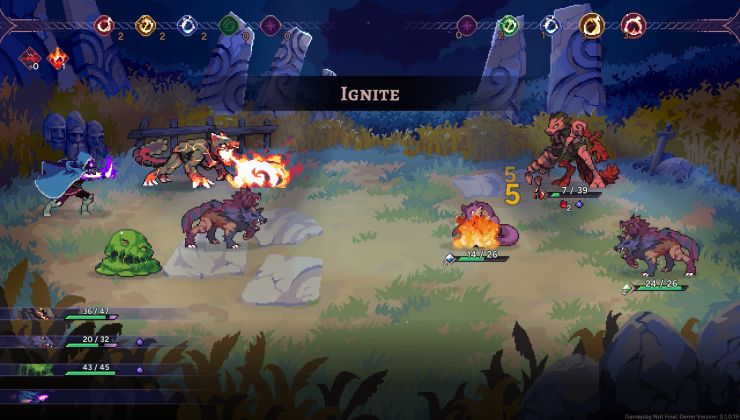
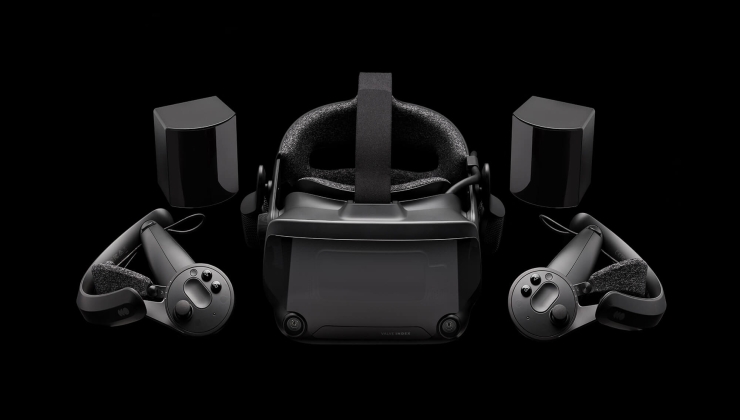
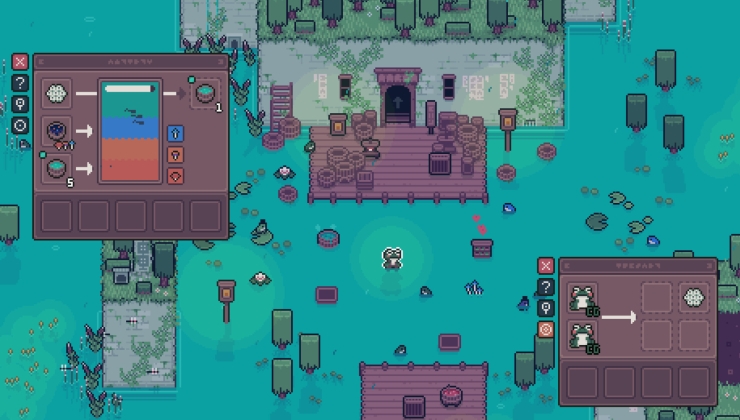
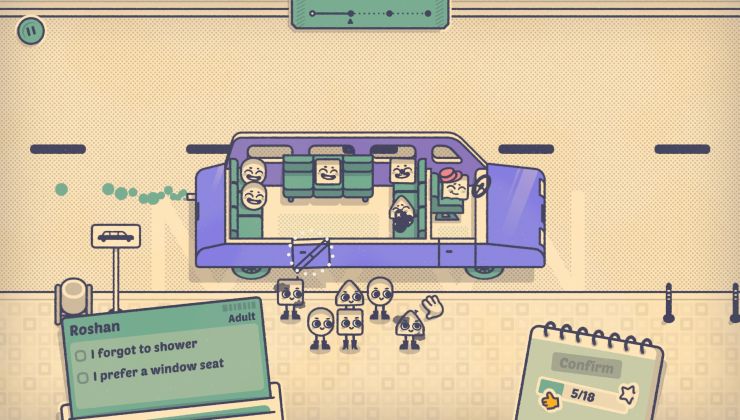









 How to set, change and reset your SteamOS / Steam Deck desktop sudo password
How to set, change and reset your SteamOS / Steam Deck desktop sudo password How to set up Decky Loader on Steam Deck / SteamOS for easy plugins
How to set up Decky Loader on Steam Deck / SteamOS for easy plugins
See more from me